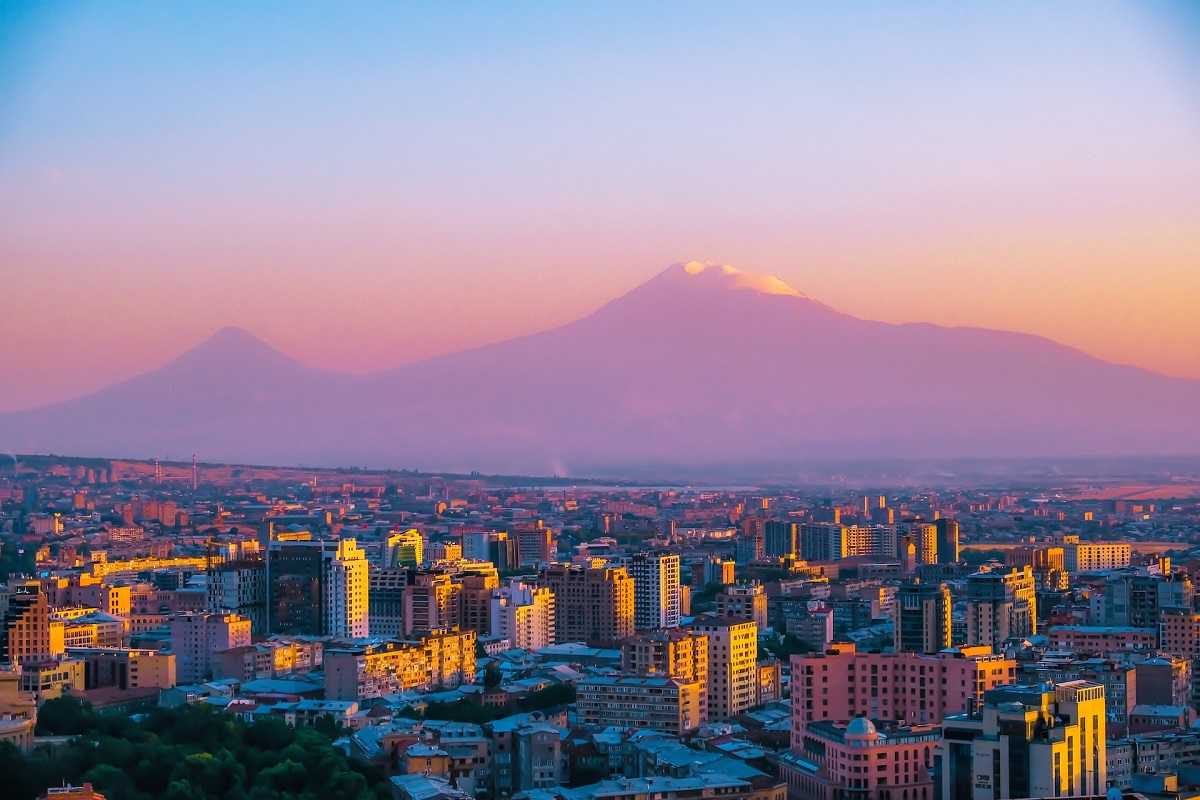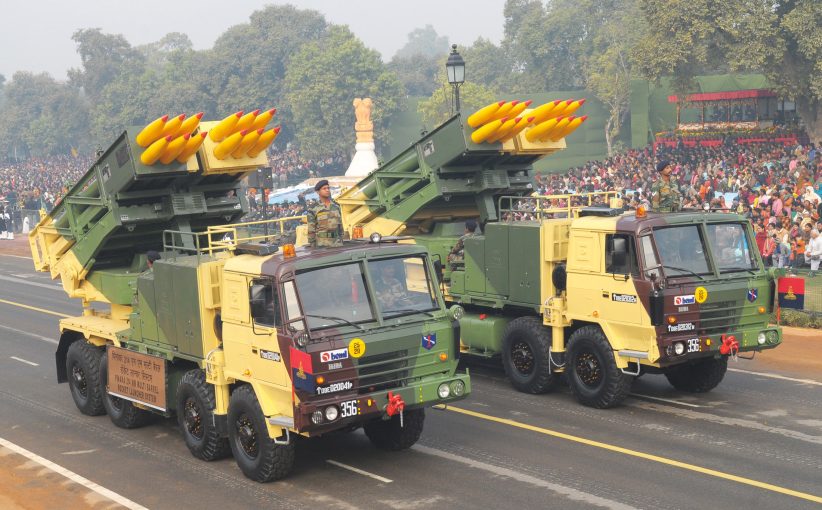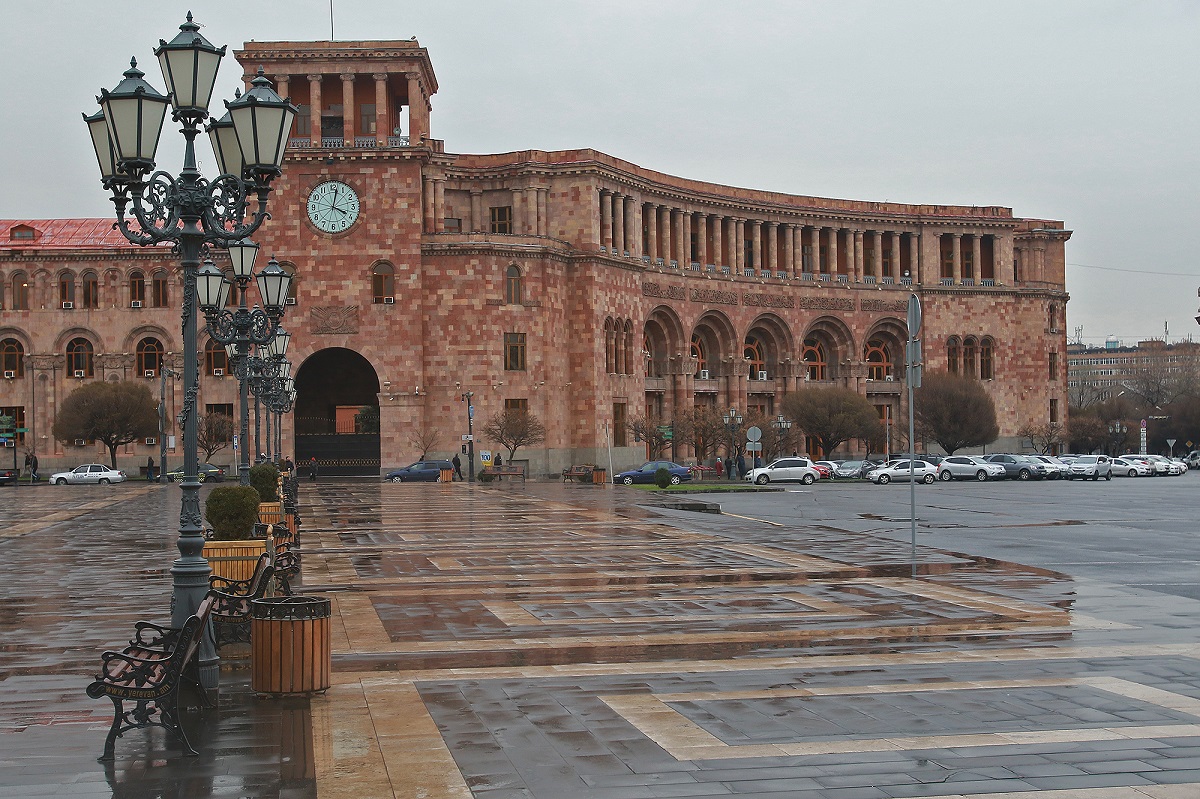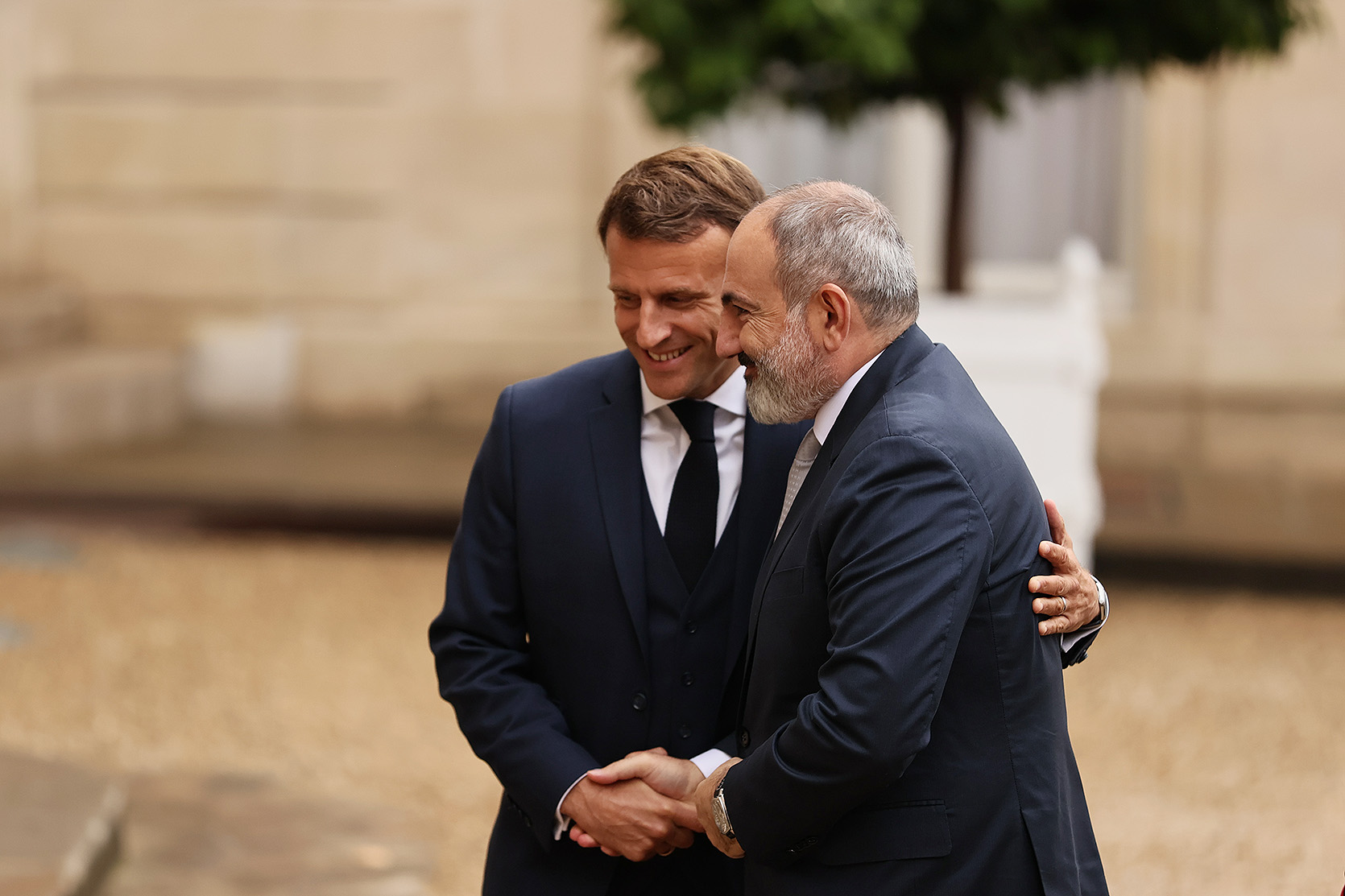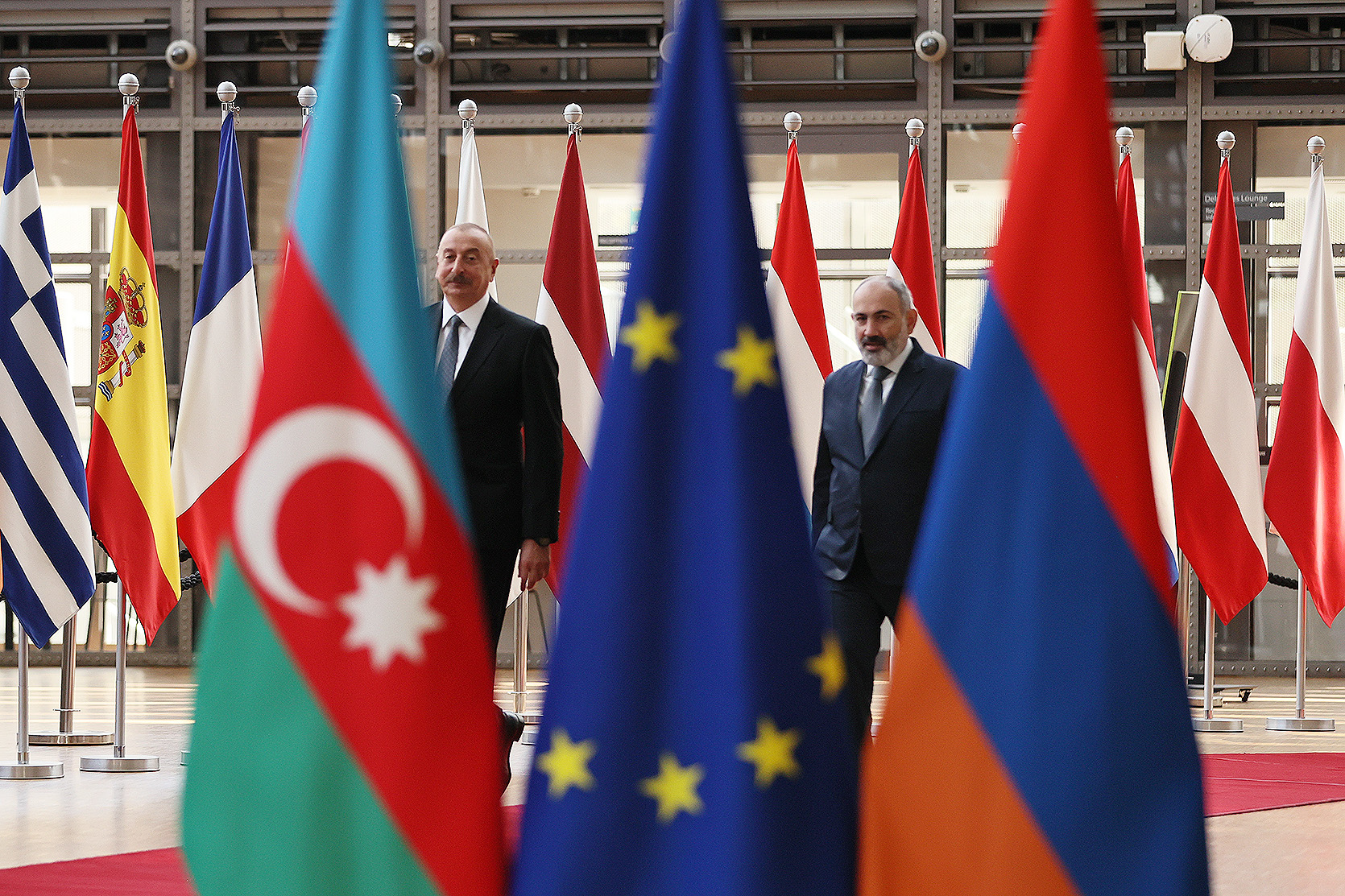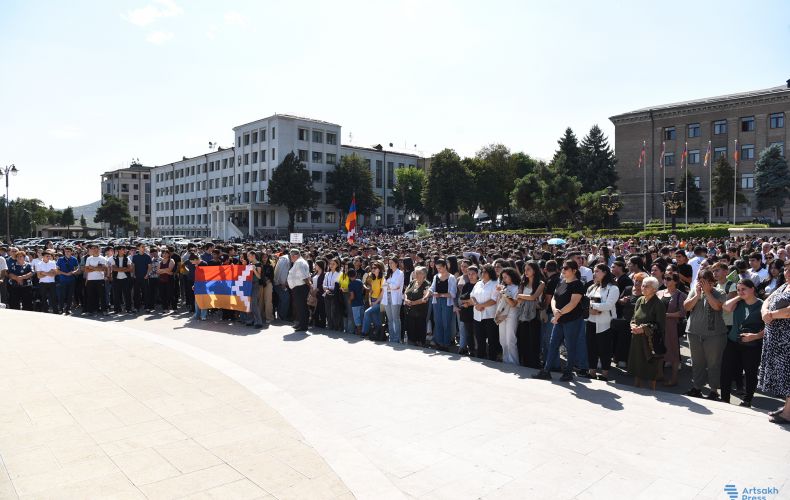“Karabakh may not be mentioned in the peace agreement with Azerbaijan” – Pashinyan
Interview with Nikol Pashinyan
“Karabakh may not be mentioned in the peace agreement with Azerbaijan,” the Prime Minister of Armenia said on air of public television.
According to Nikol Pashinyan, the fate of Nagorno-Karabakh should be decided by its people through their own elected leaders. He had already discussed this issue with them nd, as the prime minister said, they had come to the conclusion that NK-Azerbaijan dialogue is the right course.
During the two-hour interview Pashinyan touched on almost all issue important to the country and society, without avoiding painful topics. He spoke about ensuring the security of the borders and the need to deploy international observers there, relations with Turkey and Azerbaijan, and whether it is possible to leave the CSTO military bloc which never came to the aid of Armenia.
This time the prime minister answered some questions cautiously and with the reservation that he cannot afford to say more, since he has no right to divulge state secrets, and does not consider it correct to report the opinions from closed talks.
Main topics and main theses of the interview of the Prime Minister of Armenia.
- “Azerbaijan intends to occupy other territories of Armenia” – Pashinyan from UN rostrum
- Are there countries ready to sell weapons to Armenia? Opinions from Yerevan
- The consequences of the “new war” in Ombudsman of Armenia’s report
“We do not close the door to anyone” – about international observers
Speaking about the tense situation on the border, Pashinyan stressed that Azerbaijan denies its military provocations, so it is necessary to deploy an international observation mission there.
“We do not close the door to anyone. Both the OSCE and the UN have the potential,” Pashinyan said.
He also explained that by international observation mission, Armenia means a long-term or permanent monitoring mechanism:
“One of the most important goals of such a mission is the transfer of objective information about the situation to international bodies, which will be followed by appropriate actions.”
What kind of action the prime minister did not specify.
“A meeting with Erdogan is possible”
Pashinyan said that he had received an invitation to take part in the European Political Community summit in Prague and had already decided to take part in the event. Answering a question about whether negotiations with the Turkish President would take place, the prime minister said:
“A meeting is not being ruled out, but at the moment it has not been confirmed.”
If it takes place, according to the prime minister bilateral relations and regional issues will be discussed.
“Is the ally that has not fulfilled its obligation to supply weapons Russia?”
The Prime Minister of Armenia did not answer this question, although this has been the subject of discussion from the moment the following statement was made at a government meeting:
“There are cases when hundreds of millions of dollars have been paid, but the obligations for the supply of weapons to Armenia are not fulfilled, including by allied countries.”
He said that he did not consider it appropriate to clarify this. However, Pashinyan explained that the contract also includes possible next steps. Either the money will be returned to Armenia, which would make it possible to acquire weapons elsewhere, or the weapons would be received. The prime minister also refused to talk about in which countries and what weapons can be acquired:
“I do not want to publicly discuss the issue of arms supplies. But we are taking active steps to expand the scope of cooperation in the military-technical sphere.”
Armenia leaves the CSTO or the CSTO leaves Armenia?
Pashinyan said that the CSTO military bloc is aware of the mood in Armenian society. The organization is aware that the people are completely disappointed with the inaction of the CSTO. The Prime Minister recalled that Armenia twice applied to the organization with a request to provide military assistance in connection with the invasion of the Azerbaijani Armed Forces into the sovereign territory of the country.
According to the prime minister, representatives of the organization even fear that “CSTO will lose Armenia.” Pashinyan answered the partners that “there are also opposite fears that Armenia will lose the CSTO, the CSTO will leave Armenia.” The Prime Minister stressed that this is not a play on words, but a “subtle subtext.” And Armenia expects a clear political assessment of the situation from the structure:
“Earlier, when we discussed the issue of Armenia’s security with our CSTO partners, we received clear assurances that the Armenian border is a red line for the CSTO. But when, after the invasion of the Azerbaijani Armed Forces in the Sotk-Khoznavar section, we turned to the CSTO, we received a strange answer from the organization that the border was not demarcated.”
Pashinyan said that the Belarusian-Russian and Russian-Azerbaijani borders are also not demarcated. Thus, “theoretically invasions can also take place on the territory of these countries.”
“If someone comes to the conclusion that there is no border between Armenia and Azerbaijan, this will mean that the CSTO simply does not exist. Because the CSTO has a zone of responsibility, which is indicated within these boundaries,” the Prime Minister said.
In fact, as Pashinyan said, the border between Armenia and Azerbaijan exists and its coordinates are very clear. This is the administrative border between Soviet Armenia and Soviet Azerbaijan. So Armenia expects from the CSTO “a clear political assessment of the situation that has developed as a result of Azerbaijani aggression.”
“The world’s need is greater”
Pashinyan maintained that the task and goal of his government remains the establishment of a peaceful era for Armenia and the region as a whole:
“And the more acute the situation, the more acute the need for peace.”
He said that the right of Armenia to a peaceful life should be protected by all possible means, and only peace can provide guaranteed security:
“As long as there is no comprehensive peace, we cannot talk about comprehensive security.”
“There is no document on the negotiating table”
Speaking of the peace agreement with Azerbaijan, Pashinyan stressed that there is no document on the negotiating table. If it were, it would be a good sign and would mean that the parties are close to peace.
But on October 2, the Foreign Ministers of Armenia and Azerbaijan will meet in Geneva, where, according to the prime minister, substantive negotiations on the text of the document should begin.
“We are ready to be flexible”
The Prime Minister said that unblocking regional roads is very important to Armenia. He also reiterated that there can be no question of an extraterritorial corridor, that is, the loss of sovereignty over a road connecting Azerbaijan with Nakhichevan.
Pashinyan also spoke of how issues of border and customs control can be resolved. In particular, Yerevan suggested delegating control to specialized international organizations. This proposal came after it was said at talks that after the conflict, Azerbaijanis would not want to communicate with Armenian border guards or customs officers when crossing the border. It is not yet clear whether Azerbaijan agrees with this proposal.
The prime minister said that although there are many questions, Armenia is ready to “show flexibility and find solutions.”
He stated that Armenia did not put any restrictions on the route either:
“The issue would have been resolved long ago if Azerbaijan did not constantly make aggressive statements and attempt to put forward territorial claims against Armenia.”
“No one is ready to recognize the independence of Nagorno-Karabakh”
It cannot be said that Moscow, Brussels and Washington have their own proposals for the resolution of Armenian-Azerbaijani relations and a peace agreement. But Pashinyan says they have their own approaches. Pashinyan did not say how they differ, but said how they are united:
“No one is ready to recognize the independence of Nagorno-Karabakh, just as no one is ready to recognize Karabakh as part of Armenia. And we need to recognize this fact.”
“Independence Assertion Process”
According to the Prime Minister, Armenia is in the process of asserting its independence and sovereignty:
“This is a very important process, we must be firm and follow this path. We will be decisive and bring the process to the end.”
Pashinyan believes that Armenia faces the task of reforming the state: “there are gaps between theory and reality, and they must be filled, otherwise the state may be lost.”
Interview with Nikol Pashinyan










